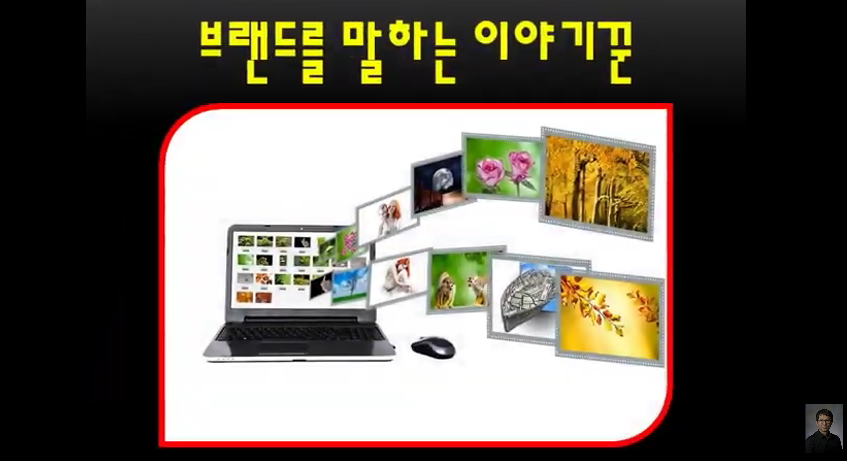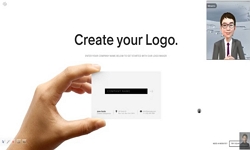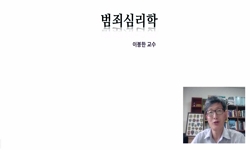페이스북에서는 자아정체성 표출, 자기표현 맥락에서 자신의 이미지를 표현하는데 유용한 정보들이 주로 이용된다. 본 연구는 브랜드가 가지는 자기표현적 기능이 페이스북에서의 브랜드 ...
http://chineseinput.net/에서 pinyin(병음)방식으로 중국어를 변환할 수 있습니다.
변환된 중국어를 복사하여 사용하시면 됩니다.
- 中文 을 입력하시려면 zhongwen을 입력하시고 space를누르시면됩니다.
- 北京 을 입력하시려면 beijing을 입력하시고 space를 누르시면 됩니다.
https://www.riss.kr/link?id=A100089686
- 저자
- 발행기관
- 학술지명
- 권호사항
-
발행연도
2013
-
작성언어
Korean
-
주제어
페이스북 ; SNS ; 팬페이지 ; 브랜드 ; 심리 ; 자아일치성 ; 자기표현 ; 공적자기의식 ; 나르시시즘 ; 브랜드 컨셉 ; 자아-일치브랜드 ; Facebook ; SNS ; fan page ; Brand ; Self-congruity ; Self-presentation ; Public self- consciousness ; Narcissism ; Brand concept
-
등재정보
KCI등재
-
자료형태
학술저널
- 발행기관 URL
-
수록면
65-86(22쪽)
-
KCI 피인용횟수
31
- 제공처
- 소장기관
-
0
상세조회 -
0
다운로드
부가정보
국문 초록 (Abstract)
페이스북에서는 자아정체성 표출, 자기표현 맥락에서 자신의 이미지를 표현하는데 유용한 정보들이 주로 이용된다. 본 연구는 브랜드가 가지는 자기표현적 기능이 페이스북에서의 브랜드 정보공유에 영향을 미칠 것으로 보았으며, 이에 따라 자아표현에 유용한 수단이 되는 자아-일치 브랜드가 브랜드 팬페이지 공유에 영향을 미칠 것으로 보았다. 본 연구는 이러한 특성을 반영하여, 이용자들의 특정 심리적 요인에 따른 자아-일치 브랜드 팬페이지에 대한 공유의도의 차이를 검증하고자 하였다. 이를 위해 페이스북 이용과 관련된 심리요인 공적자기의식과 나르시시즘을 중심으로 자아-일치 팬페이지에 대한 공유의도의 차이를 검증하였으며, 또한 이러한 심리적 요인과 공유의도에 대한 브랜드 컨셉(상징적 vs. 기능적)의 조절효과를 분석하였다. 페이스북 이용경험이 있는 20~30대 성인남녀를 대상으로 온라인 설문을 진행하였고, 이를 토대로 심리요인과 브랜드 컨셉에 따른 팬페이지 공유의도를 분석하였다. 연구 결과, 페이스북 이용자의 공적자기의식과 나르시시즘적 성향이 높을수록 자아-일치 팬페이지에 대한 공유의도가 높은 것으로 나타났으며, 브랜드 컨셉(상징적 vs. 기능적)에 따른 상호작용을 검증한 결과, 나르시시즘과 브랜드 컨셉에서 유의한 상호작용이 검증되었다. 즉, 나르시스트적 성향이 강할수록, 상징적 컨셉의 자아-일치 브랜드 팬페이지에 더 높은 공유의도를 갖는다. 본 연구는 이러한 결과를 통해 기업의 팬페이지 운영에 전략적 방향을 제시하고, SNS와 소비자 심리에 대한 이론적 시사점을 제시하고자 한다.
다국어 초록 (Multilingual Abstract)
Recently, numerous studies have attempted to explore how and why people use facebook. But there has been scant attention to the use behavior of the facebook fanpage, an important tool for the facebook marketing in academic area. This study aims to exp...
Recently, numerous studies have attempted to explore how and why people use facebook. But there has been scant attention to the use behavior of the facebook fanpage, an important tool for the facebook marketing in academic area. This study aims to explore how socio-psychological factors have effects on the share intention of fanpage. Centrally focusing on the self-congruent brand fanpage, we analyzed the effects of public self-consciousness, narcissism and brand concept(symbolic vs. functional) on the fanpage share intention. We conducted online survey from the 20-40 aged facebook users and examined the data. The analysis suggested that public self-consciousness, narcissism, and brand concept were significantly related with the share intention of the self-congruent brand fan page. Specifically, users with a high level of public self-consciousness and narcissism are more likely to share their fanpage than those with low level of self-consciousness and narcissism. And the interaction effect between the narcissism and brand concept on the sharing intention has been shown to be significant. People with high level of narcissism showed higher share intention in the symbolic brand concept than in functional brand concept. But the interaction effect between the public self-consciousness and brand concept was marginally significant. Based on these findings, we suggested theoretical and practical implication.
참고문헌 (Reference)
1 윤태환, "호스피탈리티브랜드와 자아이미지의 일치성 측정에 관한 연구: 직접측정과 간접측정의 예측력 비교" 한국호텔관광학회 13 (13): 307-318, 2011
2 이호규, "페이스북의 정체성에 대한 탐색적 시론: 커뮤니케이션 상황에 대한 인식과 커뮤니케이션 양식을 중심으로" 사이버커뮤니케이션학회 28 (28): 129-172, 2011
3 전성민, "페이스북 시대: 소셜 네트워크를 활용한 비즈니스와 마케팅" 한빛미디어 2010
4 최은영, "패션 브랜드의 페이스북 커뮤니케이션을 통한 프로모션 사례연구 - 공감, 참여적 요소를 중심으로 -" 한국복식학회 62 (62): 137-151, 2012
5 손주영, "이미지 일치성과 제품속성이 브랜드 태도와 브랜드 결속에 미치는 영향" 인하대학교 대학원 2005
6 황연순, "소비자의 나르시시즘성향과 의류제품추구혜택" 한국의류산업학회 12 (12): 338-346, 2010
7 장준수, "브랜드 개성-자아 이미지 일치성이 구매의도에 미치는 영향 : 자기 감시성과 제품유형의 조절효과" 한국광고학회 22 (22): 7-23, 2011
8 류강석, "고객추천 보상프로그램이 소비자의 추천의도에 미치는 영향 : 보상유형, 고객-브랜드 관계의 질, 제품사용지위의 역활을 중심으로" 한국마케팅학회 19 (19): 179-196, 2004
9 DMC 미디어 마케팅팀, "www.dmcreport.co.kr/include/download. php?sType=premium& iFileKey=231"
10 Bushman, Brad J., "What’s in a Name? The Moderating Role of Public Self-Consciousness on the Relation Between Brand Label and Brand Preference" 78 (78): 857-851, 1993
1 윤태환, "호스피탈리티브랜드와 자아이미지의 일치성 측정에 관한 연구: 직접측정과 간접측정의 예측력 비교" 한국호텔관광학회 13 (13): 307-318, 2011
2 이호규, "페이스북의 정체성에 대한 탐색적 시론: 커뮤니케이션 상황에 대한 인식과 커뮤니케이션 양식을 중심으로" 사이버커뮤니케이션학회 28 (28): 129-172, 2011
3 전성민, "페이스북 시대: 소셜 네트워크를 활용한 비즈니스와 마케팅" 한빛미디어 2010
4 최은영, "패션 브랜드의 페이스북 커뮤니케이션을 통한 프로모션 사례연구 - 공감, 참여적 요소를 중심으로 -" 한국복식학회 62 (62): 137-151, 2012
5 손주영, "이미지 일치성과 제품속성이 브랜드 태도와 브랜드 결속에 미치는 영향" 인하대학교 대학원 2005
6 황연순, "소비자의 나르시시즘성향과 의류제품추구혜택" 한국의류산업학회 12 (12): 338-346, 2010
7 장준수, "브랜드 개성-자아 이미지 일치성이 구매의도에 미치는 영향 : 자기 감시성과 제품유형의 조절효과" 한국광고학회 22 (22): 7-23, 2011
8 류강석, "고객추천 보상프로그램이 소비자의 추천의도에 미치는 영향 : 보상유형, 고객-브랜드 관계의 질, 제품사용지위의 역활을 중심으로" 한국마케팅학회 19 (19): 179-196, 2004
9 DMC 미디어 마케팅팀, "www.dmcreport.co.kr/include/download. php?sType=premium& iFileKey=231"
10 Bushman, Brad J., "What’s in a Name? The Moderating Role of Public Self-Consciousness on the Relation Between Brand Label and Brand Preference" 78 (78): 857-851, 1993
11 Ackerman, R. A., "What Does the Narcissistic Personality Inventory Really Measure?" 18 : 67-87, 2011
12 Schau, H. J., "We Are What We Post? Self-Presentation in Personal Web Space" 30 (30): 385-404, 2003
13 Sheldon, P., "The Relationship between Unwillingness to Communicate and Students' Facebook Use" 20 (20): 67-75, 2008
14 Aaker, Jennifer L., "The Malleable Self: The Role of Self-expression in Persuasion" 36 (36): 45-57, 1999
15 Xu, Y., "The Influence of Public Self-consciousness and Materialism on Young Consumers' Compulsive Buying" 9 (9): 37-48, 2008
16 Hogg, M. K., "The Impact of Self-monitoring on Image Congruence and Product/Brand Evaluation" 34 (34): 641-666, 2001
17 Irmak, Caglar, "The Impact of Product Name on Dieters' and Nondieters' Food Evaluations and Consumption" 38 (38): 390-405, 2011
18 Sedikides, C., "The I That Buys : Narcissists as Consumers" 17 (17): 254-257, 2007
19 Bhat, Subodh, "Symbolic and Functional Positioning of Brands" 15 (15): 32-43, 1998
20 O’Cass A, "Status Brands: Examining the Effects of Non-product-related Brand Associations on Status and Conspicuous Consumption" 11 (11): 67-88, 2002
21 "Socialbakers"
22 Mehdizadeh, Soraya, "Self-presentation 2.0 : Narcissism and Self-esteem on Facebook" 13 (13): 357-365, 2010
23 Fenigstein, A., "Self-consciousness, Self-attention, and Social Interaction" 37 (37): 75-86, 1979
24 Sirgy, M. Joseph, "Self-concepts in Consumer Behavior: A Critical Review" 9 : 287-300, 1982
25 Escalas, Jennifer Edson, "Self-Construal, Reference Groups, and Brand Meaning" 32 : 378-389, 2005
26 Becherer, Richard C., "Self- Monitoring as a Moderating Variable in Consumer Behavior" 5 : 159-163, 1978
27 Fenigstein, A., "Public and Private Self-consciousness : Assessment and Theory" 43 (43): 522-527, 1975
28 Baumeister, Roy F., "Public Versus Private Expectancies of Success: Confidence Booster or Performance Pressure?" 48 (48): 1447-, 1985
29 Shim, Minsun, "Photograph Use on Social Network Sites among South Korean Colleage Students: The Role of Public and Private Selfconsciousness" 11 (11): 489-493, 2008
30 Vorvoreanu, M., "Perceptions of Corporations on Facebook : An Analysis of Facebook Social Norms" 4 (4): 67-86, 2009
31 Grubb, Edward L., "Perception of Self Generalized Stereotypes and Brand Selection" 5 (5): 58-63, 1968
32 DeAndrea, David C., "Online Language: The Role of Culture in Self-Expression and Self-Constual on Facebook" 29 (29): 425-442, 2010
33 Buss, D. M., "Narcissistic Acts in Everyday Life" 59 (59): 179-215, 1991
34 Emmons, R., "Narcissism: Theory and Measurement" 52 : 11-17, 1987
35 Ong, Eileen Y. L., "Narcissism, Extraversion and Adolescents' Self-presentation on Facebook" 50 : 180-185, 2011
36 Carpenter, Christopher J., "Narcissism on Facebook: Self-Promotional and Anti-social Behavior" 52 : 482-486, 2012
37 Brown, R. P., "Narcissism and the Nonequivalence of Self-esteem Measures: A Matter of Dominance?" 38 : 585-592, 2004
38 Brown, R. P., "Narcissism and the Nonequivalence of Self-esteem Measures : A Matter of Dominance?" 38 : 585-592, 2004
39 Buffardi, Laura E., "Narcissism and Social Networking Web Sites" 34 (34): 1303-1314, 2008
40 Zeigler-Hill, Virgil, "Narcissism and Self-esteem Reactivity: The Role of Negative Achievement Events" 44 (44): 285-292, 2010
41 Zeigler-Hill, Virgil, "Narcissism and Self-esteem Reactivity: The Role of Negative Achievement Events" 44 : 285-292, 2010
42 DeWall, Nathan C., "Narcissism and Implicit Attention Seeking: Evidence from Linguistic Analyses of Social Networking and Online Presentation" 51 : 57-62, 2011
43 Sedikieds, Constantine, "Narcissism and Brand Name Consumerism, In The Handbook of Narcissism and Narcissistic Personlaity Disorder" Hoboken 382-392, 2001
44 Aiken, L. S., "Multiple Regression: Testing and Interpreting Interactions" Sage 1991
45 Gonzales, Amy L., "Mirror, Mirror on My Facebook Wall Effects of Exposure to Facebook on Self-esteem" 14 (14): 79-83, 2011
46 Burroughs, James E., "Materialism and Well-being: A Conflicting Values Perspective" 29 (29): 348-370, 2002
47 Utz, Sonja, "It Is All About Being Popular : The Effects of Need for Popularity on Social Network Site" 15 (15): 91-98, 2012
48 Lin, Kuan-Yu, "Intention to Continue Using Facebook Fan Pages from the Perspective of Social Capital Theory" 14 (14): 165-170, 2011
49 Taylor, David G., "Friends, Fans, and Followers: Do Ads Work on Social Networks? How Gender and Age Shape Receptivity?" 51 : 258-275, 2011
50 Emmons, R. A, "Factor Analysis and Construct Validity of the Narcissistic Personality Inventory" 48 : 291-300, 1984
51 Gangadharbatla, Harsha, "Facebook Me: Collective Selfesteem, Need to Belong, and Internet Self-efficacy as Predictors of the Igeneration's Attitudes toward Social Networking Sites" 8 (8): 5-15, 2008
52 Park, C. Whan, "Evaluation of Brand Extensions: the Role of Product Feature Similarity and Brand Concept Consistency" 18 : 185-193, 1991
53 Malär, Lucia, "Emotional Brand Attachment and Brand Personality : The Relative Imprortance of the Actual and the Ideal Self" 75 : 35-52, 2011
54 Gogolinski, Tara B., "Effects of Self-monitoring and Public Self-consciousness on Perceptions of Facebook Profiles" 1 (1): 1-30, 2010
55 Supphellen, M., "Drivers of Intention to Re-visit the Website of Wellknown Companies: The Role of Corporate Brand Loyalty" 43 (43): 341-352, 2001
56 Jamal, A., "Consumers and Brands : A Study of the Impact of Self- Congruence on Brand Preference and Satisfaction" 19 (19): 482-492, 2001
57 Twenge, Jean M, "Birth Cohort Increases in Narcissistic Personality Traits among American College Students, 1982-2009" 1 (1): 99-106, 2010
58 Sirgy, M. Joseph, "Assessing the Predictive Validity of Two Methods of Measuring Self-image Congruence" 25 (25): 229-241, 1997
59 Snyder, M., "Appeals to Image and Claims about Quality: Understanding the Psychology of Advertising" 49 (49): 586-597, 1985
60 Ryu, Gangseog, "A Penny for Your Thoughts: Referral Reward Programs and Referral Likelihood" 71 (71): 84-94, 2007
동일학술지(권/호) 다른 논문
-
내향중앙성과 외향중앙성이 상품선택에 미치는 효과에 관한 비모수적 반응표면분석
- 한국마케팅학회
- 김진교(Jin Gyo Kim)
- 2013
- KCI등재
-
- 한국마케팅학회
- 김해룡(Hae Ryong Kim)
- 2013
- KCI등재
-
- 한국마케팅학회
- 이철성(Chul Sung Lee)
- 2013
- KCI등재
-
소셜미디어 이용 동기의 차원 분석과 마케팅 시사점에 관한 탐색적 연구
- 한국마케팅학회
- 이방형(Bang Hung Lee)
- 2013
- KCI등재
분석정보
인용정보 인용지수 설명보기
학술지 이력
| 연월일 | 이력구분 | 이력상세 | 등재구분 |
|---|---|---|---|
| 2026 | 평가예정 | 재인증평가 신청대상 (재인증) | |
| 2020-01-01 | 평가 | 등재학술지 유지 (재인증) |  |
| 2019-05-10 | 학회명변경 | 영문명 : 미등록 -> Korean Marketing Association |  |
| 2019-04-03 | 학술지명변경 | 외국어명 : Korean Marketing Review -> Korean Journal of Marketing |  |
| 2017-01-01 | 평가 | 등재학술지 유지 (계속평가) |  |
| 2013-01-01 | 평가 | 등재학술지 유지 (등재유지) |  |
| 2010-01-01 | 평가 | 등재학술지 유지 (등재유지) |  |
| 2008-01-01 | 평가 | 등재학술지 유지 (등재유지) |  |
| 2006-01-01 | 평가 | 등재학술지 유지 (등재유지) |  |
| 2003-01-01 | 평가 | 등재학술지 선정 (등재후보2차) |  |
| 2002-01-01 | 평가 | 등재후보 1차 PASS (등재후보1차) |  |
| 1999-07-01 | 평가 | 등재후보학술지 선정 (신규평가) |  |
학술지 인용정보
| 기준연도 | WOS-KCI 통합IF(2년) | KCIF(2년) | KCIF(3년) |
|---|---|---|---|
| 2016 | 1.93 | 1.93 | 1.95 |
| KCIF(4년) | KCIF(5년) | 중심성지수(3년) | 즉시성지수 |
| 2.03 | 1.94 | 4.016 | 0.3 |





 DBpia
DBpia







